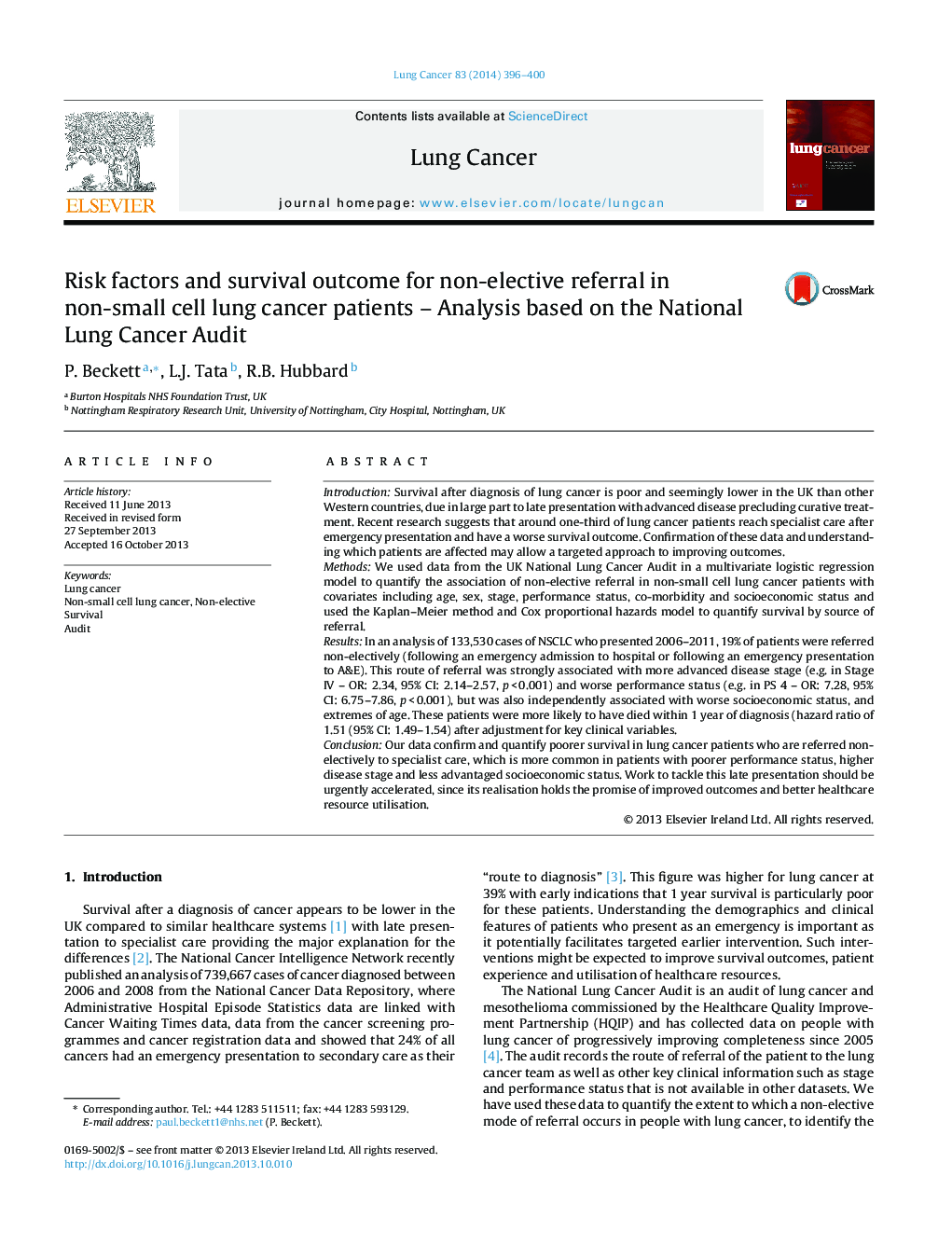| کد مقاله | کد نشریه | سال انتشار | مقاله انگلیسی | نسخه تمام متن |
|---|---|---|---|---|
| 2140938 | 1088271 | 2014 | 5 صفحه PDF | دانلود رایگان |
IntroductionSurvival after diagnosis of lung cancer is poor and seemingly lower in the UK than other Western countries, due in large part to late presentation with advanced disease precluding curative treatment. Recent research suggests that around one-third of lung cancer patients reach specialist care after emergency presentation and have a worse survival outcome. Confirmation of these data and understanding which patients are affected may allow a targeted approach to improving outcomes.MethodsWe used data from the UK National Lung Cancer Audit in a multivariate logistic regression model to quantify the association of non-elective referral in non-small cell lung cancer patients with covariates including age, sex, stage, performance status, co-morbidity and socioeconomic status and used the Kaplan–Meier method and Cox proportional hazards model to quantify survival by source of referral.ResultsIn an analysis of 133,530 cases of NSCLC who presented 2006–2011, 19% of patients were referred non-electively (following an emergency admission to hospital or following an emergency presentation to A&E). This route of referral was strongly associated with more advanced disease stage (e.g. in Stage IV – OR: 2.34, 95% CI: 2.14–2.57, p < 0.001) and worse performance status (e.g. in PS 4 – OR: 7.28, 95% CI: 6.75–7.86, p < 0.001), but was also independently associated with worse socioeconomic status, and extremes of age. These patients were more likely to have died within 1 year of diagnosis (hazard ratio of 1.51 (95% CI: 1.49–1.54) after adjustment for key clinical variables.ConclusionOur data confirm and quantify poorer survival in lung cancer patients who are referred non-electively to specialist care, which is more common in patients with poorer performance status, higher disease stage and less advantaged socioeconomic status. Work to tackle this late presentation should be urgently accelerated, since its realisation holds the promise of improved outcomes and better healthcare resource utilisation.
Journal: Lung Cancer - Volume 83, Issue 3, March 2014, Pages 396–400
